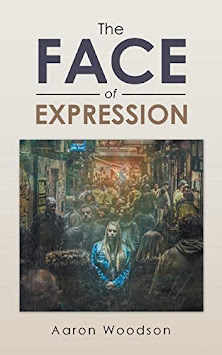 |
Available on Amazon |
It is possible for poetry to be both readable and literary, strong enough of voice to be almost conversational, yet sophisticated enough in technique to pleasure the educated reader. In this full-length collection by Marc Vincenz, (Unlikely Books) the reader is presented with not only the new work of a well-published writer, but two critical essays at the volume’s final pages, positioning the book as also existing as a critical text for literary study.
The work is divided into seven sections, all named, with six sections for the poems themselves. While these sections are chapbook length, the section names are of a macabre nature, with four named for the corpses of wild born beings, and two for the sort of found trash prosaic to strolls. Of the two concluding essays (by Robert Archambeau and Philip Nikolayev), it is Archambeau who refers to Vincenz’s “typical, despoiled landscape” (127) as a binary seeking enlightenment through a kind of Jungian, intuitive process. A reader moderately aware of symbol structures will discover much meat in this collection: the angelic number of chapters is a strong clue of the symbolic path of the poems, a path that Nikolayev calls “a personal manifesto” (133). But while both essayists cite lines and sections that employ strong symbolism, their view of these symbols is either “a brief flash of satori” (Archambeau, 128), or “observations about insects and birds and other chitchat” (Nikolayev, 140).
Perhaps a brief conversation can be had about the symbols themselves, perceived by Vincenz and repeated throughout the work. While the fluctuating use of pronouns might interest some readers—how sometimes the second person seems very specific, and other times a general address—or how the plethora of death imagery (“And so we climb/ Deep into the tomb”, 113-114) could yield full study alone, a view beyond the chitchat about birds is also revealing.A casual indexing of references of birds involves some two dozen occurrences throughout the book, with a half a dozen utilizations of egg.
Vincenz directs one work here to a specific bird, “Hanging Out the Window for a Sparrow” (80), written as a prose poem. Rather than referencing the avian being as symbolic evidence for a meditative point, the poem makes its metaphysical point to the sparrow: “It rained on all of us, even you with your talons, even where the mad moth whirls or the wounded spring curls;” finally including birds as along for the ride, instead of a landscape the reader sees as a kind of fly-over state.
In the section dedicated to the tell of an avian accident, "Feathers of a Dead Turkey," centered in the collection and comprising of eight pieces, the opening poem “Of Cargo” Vincenz nestles this collection’s gothic meditation. Immediately setting the season, “In autumn”, which birdwatchers know to be legalized murder period for the species, the poem then follows a discourse of associative symbols, except these are references to human myth, concluding with violent Agrippina “her hairpins and hair/ // Overflowing in daises” (60). Later, in “Arrowheads”, two humans, apparently in bed, muse “Later still, sighing, you say:/ ‘How does one get away with murder?/ What century is this? What era?’/ Outside, the towers wobble” (65) Maybe it is here that this work’s migrating thought might roost. Any reader will respond to a symbolic investigation of the noun “tower”, making it a potent symbol. Beyond modern history, the easy mythology of tarot positions a tower as a symbol of expensive endeavor. Combining this with murder creates the sort of modern context of our ordinary anxieties. A view to the poem’s horizon has the reader realizing that this is a probable post-coital conversation. The poem’s title references objects from a pre-colonized human civilization, and the poem’s conclusion is a view of a squirrel—but not an ordinary squirrel, a mutated being who “sits curved, /His blue eyes trained on the soil.” The poem has dealt us a hand in this flock of symbols; the reader is subtly encompassed in an awareness of humanity’s sins.
The physical volume has a number of conclusions: a photograph of objects that named the chapters, a prose poem, “One More for the Road”, the two essays and a two-page list of the author’s previous works. Viewing this as either five or seven numerological points from which the reader can exit the book, the parting words of the author “Emerge, Sweet Creature, and light up the way”(119); of the critics , “spirit of exploration”( Archambeau) and “ a mighty personal lyric chord”(Nikolayev) are a call to carry the book’s song with us, a sophisticated opera about a broken-hearted man in a landscape of death.
Su Zi is a writer, poet and essayist who produces a handmade chapbook series called Red Mare. She has been a contributor to GAS from back when it was called Gypsy Art Show, more than a decade ago.
Check out her author page on Amazon.
 |
Marc Vincenz and Su Zi |









